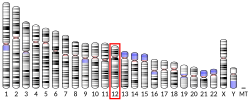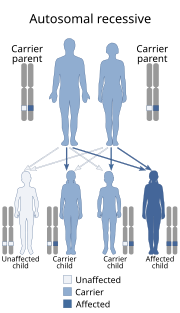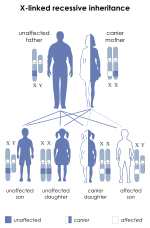V-ATPase 116 kDa isoform a2, is an enzyme that in humans is encoded by the ATP6V0A2 gene. V-ATPase 116 kDa isoform a2 is a subunit of the vacuolar ATPase (v-ATPase)...
7 KB (838 words) - 02:27, 9 February 2024
exhibits an autosomal recessive inheritance pattern with mutations in the ATP6V0A2 gene, leading to abnormal glycosylation events. There are only about 30...
21 KB (2,309 words) - 19:47, 29 October 2024
extracellular matrix. Cutis laxa may be caused by mutations in the genes: ELN, ATP6V0A2, ATP7A, FBLN4, FBLN5, and PYCR1. A related neurocutaneous syndrome may...
12 KB (1,176 words) - 12:51, 2 September 2024
ATP6V1E1, ATP6V1E2, ATP6V1F, ATP6V1G1, ATP6V1G2, ATP6V1G3, ATP6V1H, ATP6V0A1, ATP6V0A2, ATP6V0A4, ATP6V0B, ATP6V0C, ATP6V0D1, ATP6V0D2, ATP6V0E Cu++ transporting:...
18 KB (2,106 words) - 04:39, 11 July 2024
and cutis laxa caused by mutations in the vesicular H+-ATPase subunit ATP6V0A2". Nature Genetics. 40 (1): 32–4. doi:10.1038/ng.2007.45. PMID 18157129...
41 KB (3,740 words) - 18:14, 25 September 2024
Vo Subunits Subunit Human Gene Note a/I ATP6V0A1, ATP6V0A2, ATP6V0A4 c ATP6V0B, ATP6V0C Ring of varied size. d/C ATP6V0D1, ATP6V0D2 e ATP6V0E1, ATP6V0E2...
44 KB (4,869 words) - 03:56, 23 June 2024
shown that De Barsy syndrome may be related to mutations in ATP6V0A2 gene, known as ATP6V0A2-CDG by the new naming system. Alternative names for De Barsy...
10 KB (905 words) - 12:15, 14 October 2024
Q96LB4 1275 ATP6V1H HGNC:18303 Q9UI12 1276 ATP6V0A1 HGNC:865 Q93050 1277 ATP6V0A2 HGNC:18481 Q9Y487 1278 ATP6V0A4 HGNC:866 Q9HBG4 1279 ATP6V0B HGNC:861 Q99437...
277 KB (17 words) - 18:34, 6 October 2024
sapiens ATPase, H+ transporting, lysosomal interacting protein 1 (ATP6IP1), ATP6V0A2 NM_012463 ATP6V0B NM_004047 Homo sapiens ATPase, H+ transporting, lysosomal...
48 KB (4,612 words) - 23:41, 12 December 2023
is caused by mutations in several different genes. These genes include ATP6V0A2, ATP7A, EFEMP2, ELN, and FBLN5. These genes are responsible for elastic...
15 KB (1,320 words) - 07:25, 11 June 2024
type I; 219100; EFEMP2 Cutis laxa, autosomal recessive, type II; 219200; ATP6V0A2 Cutis laxa, autosomal recessive, type IIB; 612940; PYCR1 Cutis laxa, recessive...
234 KB (18,877 words) - 15:43, 9 May 2024






